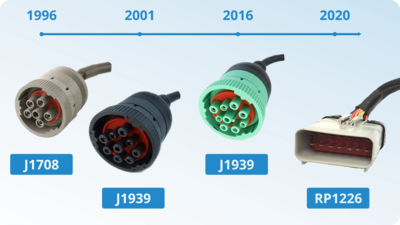Trucking companies across the country have follows HOS regulations for decades. Did you know that The Federal Motor Carrier Safety Administration (FMCSA) provides certain exceptions from these HOS rules to help agricultural workers meet the needs of the growing season? Let's dive into the details of the agricultural HOS exemption.
What are HOS and ELD?
Hours of Service (HOS) and Electronic Logging Device (ELD) regulations are enforced by the FMCSA to ensure the safety of the trucking industry. HOS establishes the maximum number of hours that a commercial driver can be on duty in a given day or week before taking a rest break, as well as the amount of time that must pass between shifts.
ELDs are electronic devices that track a truck driver’s driving hours and record the data electronically. The FMCSA requires ELDs in most cases, but there are exemptions for certain industries, including agriculture.
Agriculture HOS are special exceptions to the standard HOS rules, allowing drivers of agriculture-related vehicles, like farm trucks and trailers, to exceed the standard HOS limits.
The Do-It-All Fleet Management Platform.
Start Today, No Contract. No CC.
What is the Agricultural HOS Exemption, and Who Can Use It?
The agricultural HOS exemption applies to all trucking fleets transporting agricultural commodities, non-processed food, animal feed, fibers, and livestock. All agricultural commodities that are at risk of perishing or degrading in quality during transport are eligible for the agricultural HOS exemption, including plants, sod, flowers, shrubs, ornamentals, seedlings, live trees, and Christmas trees. Farming supplies intended for agricultural use also qualify for the agricultural HOS exemption. Non-processed food refers to food commodities in a raw or natural state and not subjected to significant post-harvest changes to enhance shelf life, such as canning, jarring, freezing, or drying.
This agricultural HOS exemption enables truck drivers transporting these materials to keep driving longer without having to record their hours in electronic logs (eLogs). Without the exemption, drivers would have to abide by federal trucking HOS regulations that limit the number of hours they can drive per day and the number of days they can drive consecutively. With the exemption, drivers can continue to drive beyond those limits during times of high demand for agricultural transportation.
Another factor that determines which fleets qualify for this exemption is distance from the source. The agricultural exemption is for truckers transporting agricultural commodities within a 150 air-mile radius of the source. This means that truckers carrying agriculture related goods such as grain, cotton, hay, and livestock can take advantage of HOS exemptions, provided the trip originates from a designated agricultural source. Elogs, or ELDs, do not need to be used when taking advantage of this agriculture HOS exemption.
The exemption applies to farms, ranches, and other loading points such as grain elevators and sale barns. If the product meets the definition of an agricultural commodity, these points are considered valid sources. When multiple loading points are used during a trip, the first loading point is considered the source that determines the 150-air-mile exemption radius.
The FMCSA provides exemptions to the trucking HOS rules during planting and harvesting periods for agricultural businesses. This allows for the extended operation of vehicles for fleets that are carrying agricultural goods and services. While all fleets must use ELDs, not all ELD devices allow for these agricultural exemptions. It's important to research and understand the specific type of device being used. The TruckSpy ELD was specifically designed for fleets utilizing HOS exemptions. If you have any questions or need an ELD, camera or dispatch software, please contact us.
Recent Blogs
by Elyse Byers
July 5, 2024




